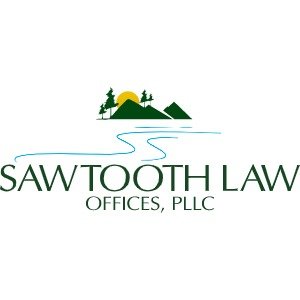Best Trusts Lawyers in Boise
Share your needs with us, get contacted by law firms.
Free. Takes 2 min.
List of the best lawyers in Boise, United States
About Trusts Law in Boise, United States
Trusts Law is a crucial area of the legal milieu in Boise, United States. Trusts typically involve the management and distribution of a grantor's assets by a trustee for the benefit of the trust's beneficiaries. They can be used to protect assets, avoid probate, and ensure effective estate planning. While they can be complex, with the help of a skilled legal counsel, the creation and management of a trust can be smoother and more effective.
Why You May Need a Lawyer
While it is possible to create a trust without legal counsel, hiring a lawyer is advisable due to the complex nature of trusts. A lawyer can help you understand the different types of trusts available, advise on which would be most suitable for your situation, and ensure the trust is created as per the Idaho Trust code. They can also assist in the administration of a trust, updates, and dispute resolution should these matters arise.
Local Laws Overview
The Idaho Trust Code (Title 15, Chapter 7, Idaho Statutes) governs trusts in Boise. Key aspects of the local laws include: the requirements for a valid trust, duties, and liabilities of trustees, rights of the beneficiaries, and provisions for modifying or terminating a trust. Of note is Idaho’s allowance for Dynasty Trusts which can last perpetuity and Asset Protection Trusts which shield assets from creditors. An informed lawyer in trusts can help you navigate these and further specifics of Idaho’s Trust Code.
Frequently Asked Questions
1. What is a Trust?
A trust is a legal arrangement where one party, known as a trustor, gives another party, known as a trustee, the right to hold and manage assets for the benefit of a third party, known as a beneficiary.
2. What types of trusts are there?
Common types of trusts include Revocable Living Trusts, Irrevocable Trusts, Testamentary Trusts, and Special Needs Trusts. Each carries its benefits and drawbacks.
3. How is a trust created?
A trust is typically established through a written trust agreement where the trustor grants the trustee right to hold and manage assets for the benefit of the named beneficiaries.
4. Can a trust be altered after it's been created?
Only revocable trusts can be modified after their creation. Irrevocable trusts, as the name suggests, are unalterable upon execution and can only be changed in limited circumstances.
5. Does having a trust mean avoiding probate?
A properly funded Revocable Living Trust can avoid probate, which often allows for the quicker distribution of assets to beneficiaries.
Additional Resources
The Idaho State Bar offers a Lawyer Referral Service, and various resources on trusts and estates can be found on the Legal self-help center on the Idaho Courts' website. Additionally, organizations such as the American College of Trust and Estate Counsel can provide further industry-related knowledge.
Next Steps
The first step if you need legal assistance in trusts is to find a trusted lawyer specializing in Trust Law. A competent lawyer can help you understand the details of your case, navigate the complexities of the Idaho Trust Code, and decide the most suitable course of action. Using the Idaho State Bar's Lawyer Referral Service is a good starting point. Ensure to have all relevant documentation readily accessible to provide clear information to your counsel.
Lawzana helps you find the best lawyers and law firms in Boise through a curated and pre-screened list of qualified legal professionals. Our platform offers rankings and detailed profiles of attorneys and law firms, allowing you to compare based on practice areas, including Trusts, experience, and client feedback.
Each profile includes a description of the firm's areas of practice, client reviews, team members and partners, year of establishment, spoken languages, office locations, contact information, social media presence, and any published articles or resources. Most firms on our platform speak English and are experienced in both local and international legal matters.
Get a quote from top-rated law firms in Boise, United States — quickly, securely, and without unnecessary hassle.
Disclaimer:
The information provided on this page is for general informational purposes only and does not constitute legal advice. While we strive to ensure the accuracy and relevance of the content, legal information may change over time, and interpretations of the law can vary. You should always consult with a qualified legal professional for advice specific to your situation.
We disclaim all liability for actions taken or not taken based on the content of this page. If you believe any information is incorrect or outdated, please contact us, and we will review and update it where appropriate.









